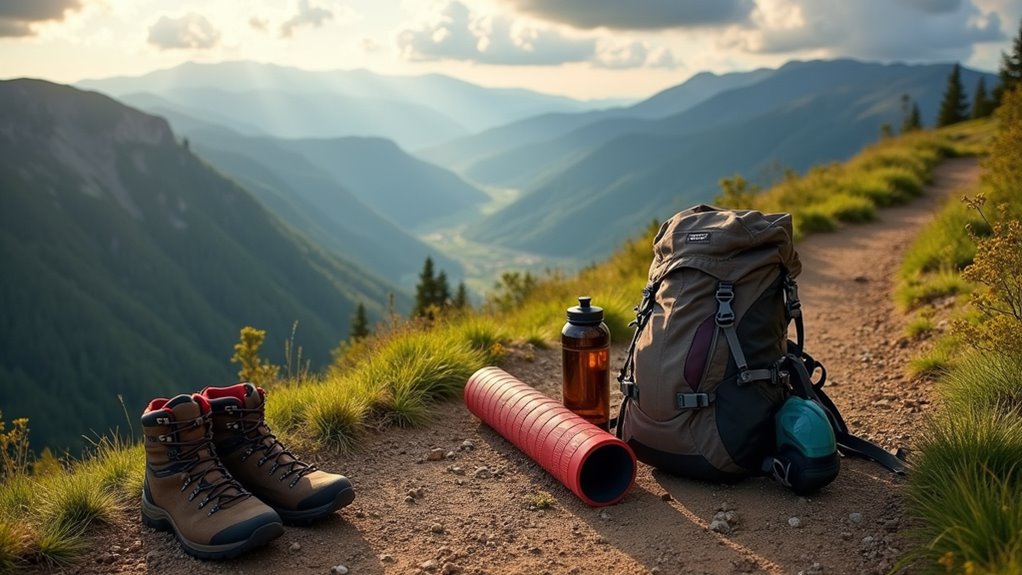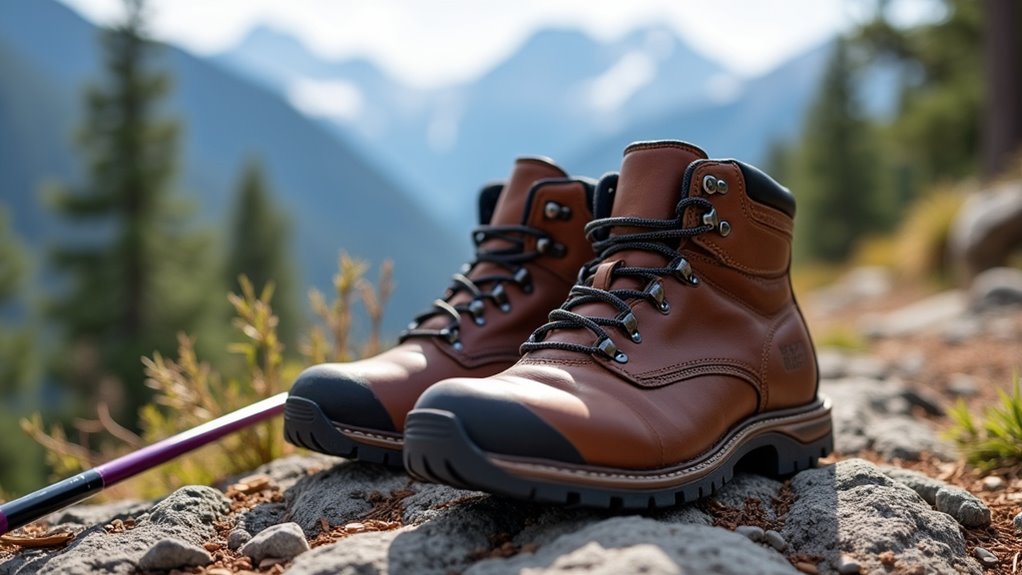To train for a long hike and build endurance, you’ll need to start at least eight weeks ahead, combining regular strength workouts focused on your legs, core, and back with consistent cardio like running or cycling. Progressively increase the length and weight of your practice hikes while wearing a loaded backpack to develop stamina and joint resilience. Maintain balanced nutrition and stay hydrated throughout your training. If you want specifics on scheduling, nutrition details, or injury prevention, there’s more to explore.
Whether you’re planning your first multi-day trek or preparing for a challenging mountain route, training for a long hike requires a deliberate and structured approach. You need to focus on building strength in your legs, core, and back, as these muscle groups are essential for handling steep ascents, descents, and carrying a loaded backpack. Incorporate exercises like squats, lunges, Bulgarian split squats, step-ups, and resistance moves such as pushups and pull-ups. All these will increase your muscle endurance, stability, and overall hiking performance. Proper training helps avoid injuries and enhances enjoyment by allowing you to focus on the scenery instead of fatigue.
Endurance training is equally important. Regular cardiovascular activities, including running, cycling, or swimming, help improve lung capacity and stamina. To mimic hiking conditions, practice long-distance hikes and train with a backpack, gradually increasing the weight to build shoulder and hip endurance. Gradually increasing workout duration and intensity is vital for avoiding injuries and building sustainable fitness.
Build endurance with regular cardio, and train with a weighted backpack to prepare your body for the demands of long-distance hikes.
Apply progressive overload by increasing workout intensity and duration systematically, but always allow for rest and recovery days to prevent overuse injuries. Consistency is key—schedule aerobic workouts several times a week and incorporate outdoor activities like trail running or mountain biking for variety and specificity. Core stability exercises are particularly beneficial for maintaining balance on uneven terrain and preventing back pain during long hikes.
Plan your training schedule at least eight weeks before your hike. Structure your weekly routine to balance strength sessions, cardio, and designated rest days. As your hike approaches, switch some cardio workouts to longer hikes, especially two weeks before departure. In the final week, reduce training intensity to avoid fatigue or injury.
Remain flexible and adjust your plan according to your progress and comfort level. Nutrition and hydration play a critical role in training success. Maintain a balanced diet rich in protein, carbohydrates, and healthy fats to support muscle repair and energy needs. Stay properly hydrated before, during, and after workouts, and prioritize post-exercise meals within an hour of finishing to optimize recovery.
Consider supplements like protein powder if you struggle to meet nutritional needs through food alone. Finally, set realistic goals, visualize your progress, and develop coping strategies for mental challenges. Always consult a healthcare provider or certified trainer before starting a new regimen to guarantee your training approach aligns with your health and fitness level.









